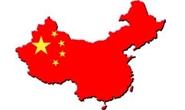Government/Policy

May 10, 2017
China Minister Comments on US and EU Trade Cases
Written by Sandy Williams
China’s Ministry of Commerce called the initiation by the U.S. of antidumping investigations on imports of cold-drawn steel mechanical tubing from China and five other countries “excessive,” in comments made on Thursday.
Wang Hejun, head of the trade remedy and investigation bureau, said he was concerned over rising protectionism from the United States.
“Under excessive protective policies, U.S. steel plants lack the motivation to make adjustments and are losing their global competitiveness. Trade partners will be harmed, and problems in the U.S. steel sector will still remain,” said Wang.
Wang said the frequent trade remedies and restrictions from the U.S. have caught the attention of the World Trade Organization. The United States should use caution and fairness in evaluating its trade case and create a stable and predictable environment for international cooperation in the steel sector, said Wang.
Wang also took issue with the final subsidy decision by the EU on imports of hot rolled coil to the region from China.
In a statement on the Ministry of Commerce site Wang said, “China strongly doubts the legitimacy of the decision of European Commission. China’s commercial banks coordinated with the EU’s investigation to the uttermost degree in this case, but the EU still ignores the fact of its independent market operation, affirming state-owned commercial banks as the ‘public organization’ and the loan provided to enterprises as the concessional loan. The EU even ignores the basic financial fact, regarding bank loan obtained by some state-owned enterprises as bestowment, creating high subsidy range deliberately, severely damaging the rights of the Chinese enterprises in this case.”
Wang urged the EU to conduct its investigation according to WTO rules and “amend its unreasonable adjudication as soon as possible.”
According to the State Council, China steel capacity has been reduced by 31.7 million tonnes to date, about 63.4 percent of its annual target.







